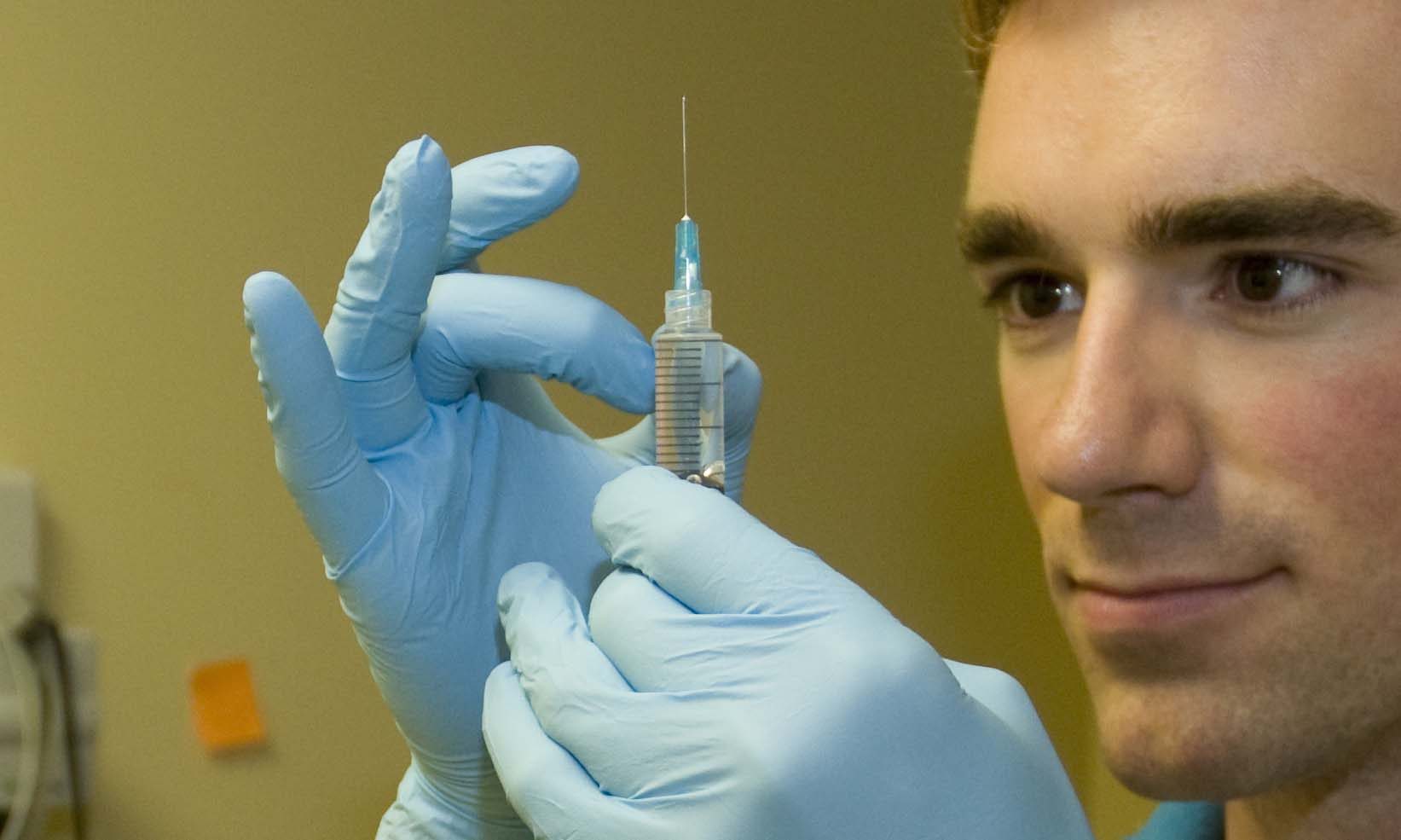
With reporting by Lesley Walker
A new Measles, Mumps and Rubella (MMR) vaccination drive in Qatar’s schools has spurred questions among parents about who is required to get the shot.
Last month, officials announced that all children in schools across the country would be given MMR booster shots between Oct. 17 and Nov. 14.
The move comes amid sporadic measles outbreaks in Qatar and as part of a global initiative to eradicate the highly infectious virus by 2020.
Many countries have used a third MMR vaccine as a way of controlling disease outbreaks, and experts say that it is safe to do so, but some parents say they are still concerned about the idea.
Requirements
According to Qatar’s vaccination schedules, children should be given two MMR shots: one at 12 months, and the second at 18 months.
However, the government said it intends to administer a booster dose to all children between the ages of one and 13, “regardless of prior vaccination status.”
The information was conveyed to parents in consent forms for the new vaccine drive over the past few weeks.

According to the form, parents should refuse to give consent for “medical reasons only.”
It also highlights the fact that the booster is “compulsory for all students” in red text, referring to two separate Qatari laws to justify this.
Objections and confusion
Many parents said they were concerned about their children getting a booster shot after already following the vaccination schedule.
Writing on the Facebook group When, Where and How in Doha, Shona Batty said she refused to give her permission, and sent the form back to her child’s school along with a copy of his (up to date) immunization records.
“If needs be I will keep him off school on the day of the vaccine,” she wrote.”I personally struggled with the initial MMR decision when my first son was a year old. Both my children have had two MMR vaccines and I am definitely refusing the third.”
But others argued that compulsory vaccination was a good thing, because it would help re-build herd immunity.
This was compromised following the refusal of some parents to vaccinate over research – now debunked – that linked vaccines to autism.
Herd immunity is particularly important when it comes to protecting those with lowered immune systems, like small children or those fighting cancer.
Doha resident Michael Cockroft said his 17-year-old daughter Mikayla died last year after contracting measles while receiving chemotherapy to treat Acute Myeloid Leukemia.
“She contracted it from someone who was not immunized,” he said on the same Facebook thread. “Please be responsible parents.”
No shot without consent
The government-provided consent forms sent home from schools give a hotline number for parents to call.
When reached for comment, a female staffer told Doha News that the Ministry of Public Health (MOPH) was “strongly advising and recommending” that all children take a third booster dose of the vaccine to aid immunity.

“There is no harm to the child,” she said.
“Two doses are given to all children in Qatar by the age of four. The third one is recommended by the (Qatari) government and by the World Health Organization. There’s nothing to worry about.”
When asked whether parents could refuse to have their children vaccinated if they had already had two shots, she said that signed consent forms were essential.
“We won’t give them the booster without the consent form,” she added.
Qatar outbreaks
Health officials say that there continue to be “sporadic” outbreaks of measles in Qatar, “most of which belong to children who have not received or completed their vaccinations.”
In a statement, Sheikh Mohammad bin Hamad bin Jassim Al Thani , Director of Public Health at the MOPH, said that Qatar had the third highest recorded rates of measles in the region.

This was due to delays in some age groups receiving the vaccination, and also due to the country’s transient population, with residents regularly flying in and out of Qatar from all over the world, he added.
Measles is a highly contagious disease caused by a virus and it is one of the leading causes of death among young children, the World Health Organization (WHO) states.
Most measles-related deaths result from complications arising from the disease such as blindness, encephalitis (swelling of the brain), severe diarrhea and respiratory infections.
Are you confused about the vaccine program? Thoughts?







